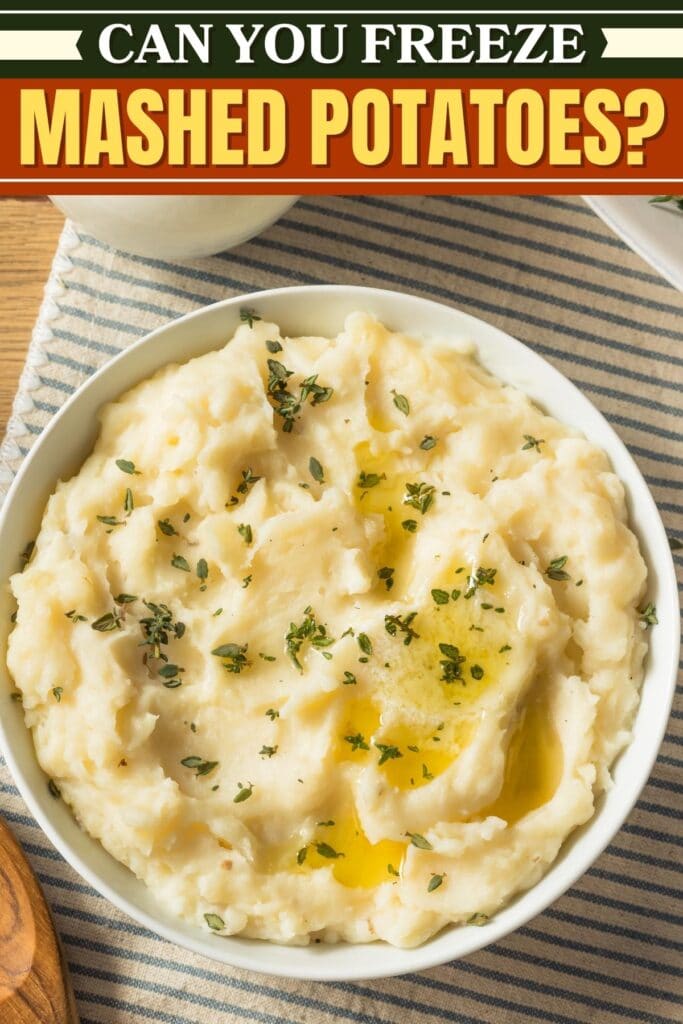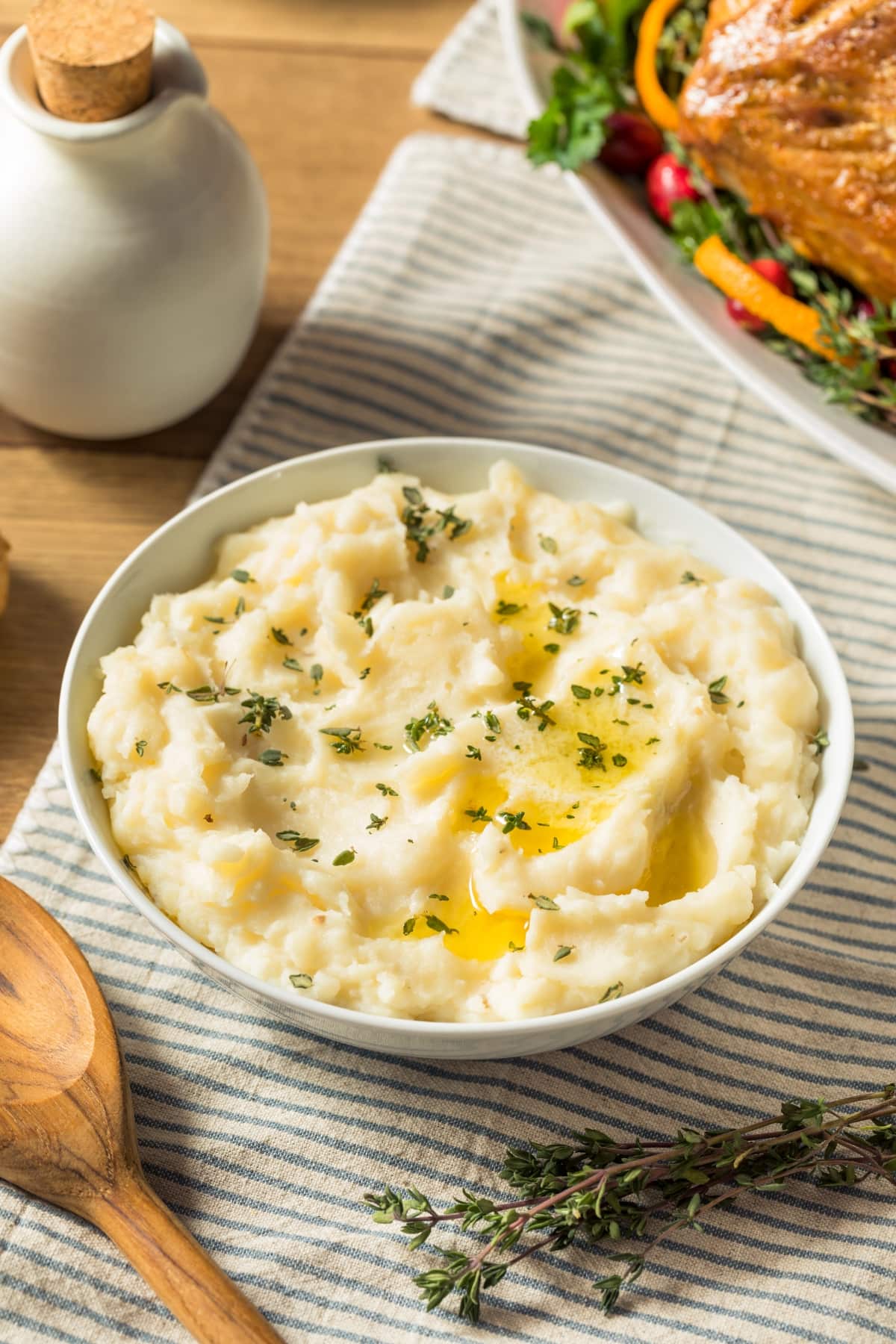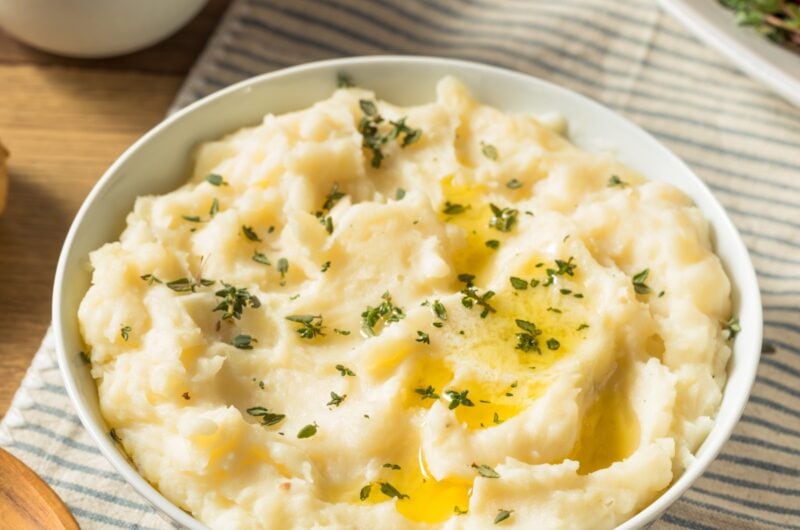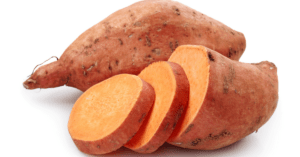Can you freeze mashed potatoes? Will they become a mushy mess once reheated?
Yes. And not necessarily. Read on!
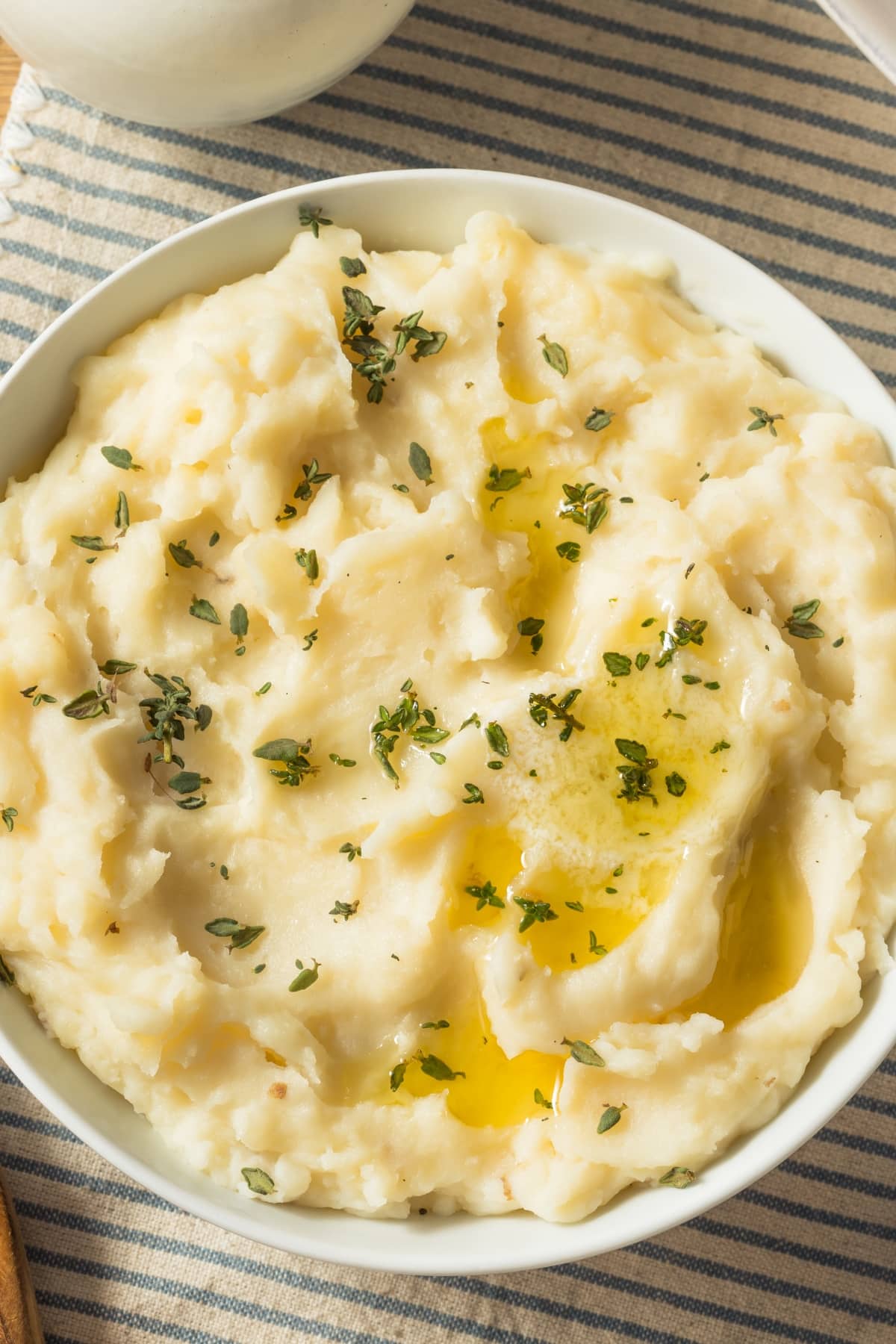
Freezing mashed potatoes is possible. But there are a few things to keep in mind.
Do you want to freeze individual portions? Or family-sized servings? Your answer determines how you should freeze your potatoes.
Plus, I have all the best tips and tricks for reheating frozen mashed potatoes. And how to troubleshoot any textural issues.
So, don’t be afraid to make extra mashed potatoes for your next gathering. You can always freeze them!
Can You Freeze Mashed Potatoes?
Yes, you can freeze mashed potatoes.
Freezing mashed potatoes is a superb way to prepare them in advance for future meals. It is also fantastic for saving leftovers if you made too much.
Follow the instructions below to learn how.
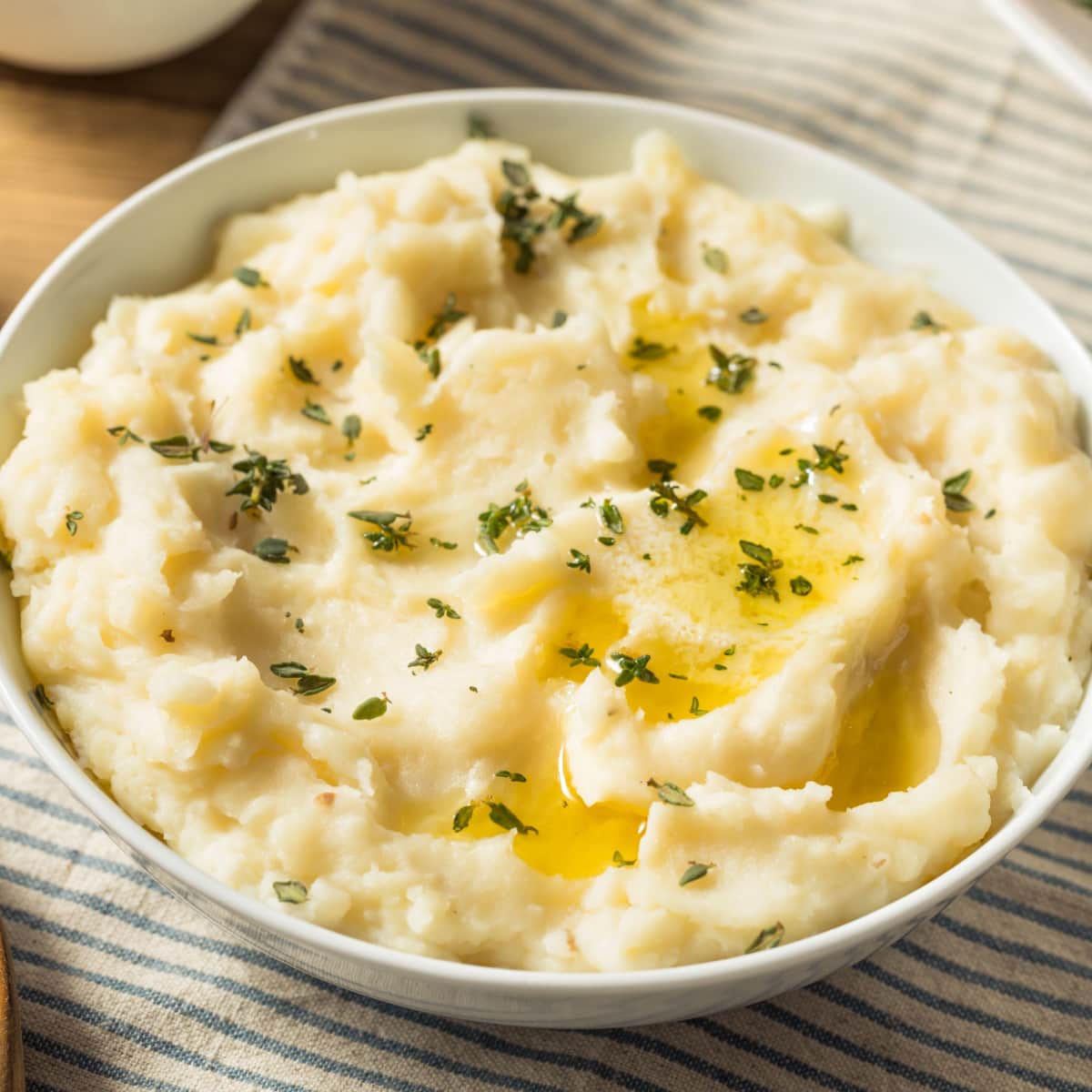
How to Freeze Mashed Potatoes
For Single Servings
- Line a baking sheet with parchment paper. Use multiple trays if necessary.
- Use an ice cream scoop or spoon to divide the mashed potatoes into serving portions. Place these portions onto the parchment-lined baking sheet(s).
- Shape each portion into a mound on the baking sheet. Use the back of a spoon to smooth the tops for even freezing.
- Place the baking sheet in the freezer. Let the portions freeze until firm. This may take a couple of hours.
- Transfer the frozen mashed potato piles into airtight, heavy-duty freezer bags. Remove as much air as possible before sealing.
- Label and date the bag.
For Group Servings
- Divide the cooled mashed potatoes into group serving sizes. Use a measuring cup or spoon to ensure consistency.
- Pack these portions into separate heavy-duty freezer bags or airtight containers.
- Seal them, removing as much air as possible to prevent freezer burn. Label and date the bag.
How Long Do Mashed Potatoes Last in the Freezer?
Mashed potatoes can last in the freezer for 2-3 months. Ensure you prepare, package, and store them properly for the best results.
After 3 months, the texture and flavor of the potatoes may start to deteriorate.
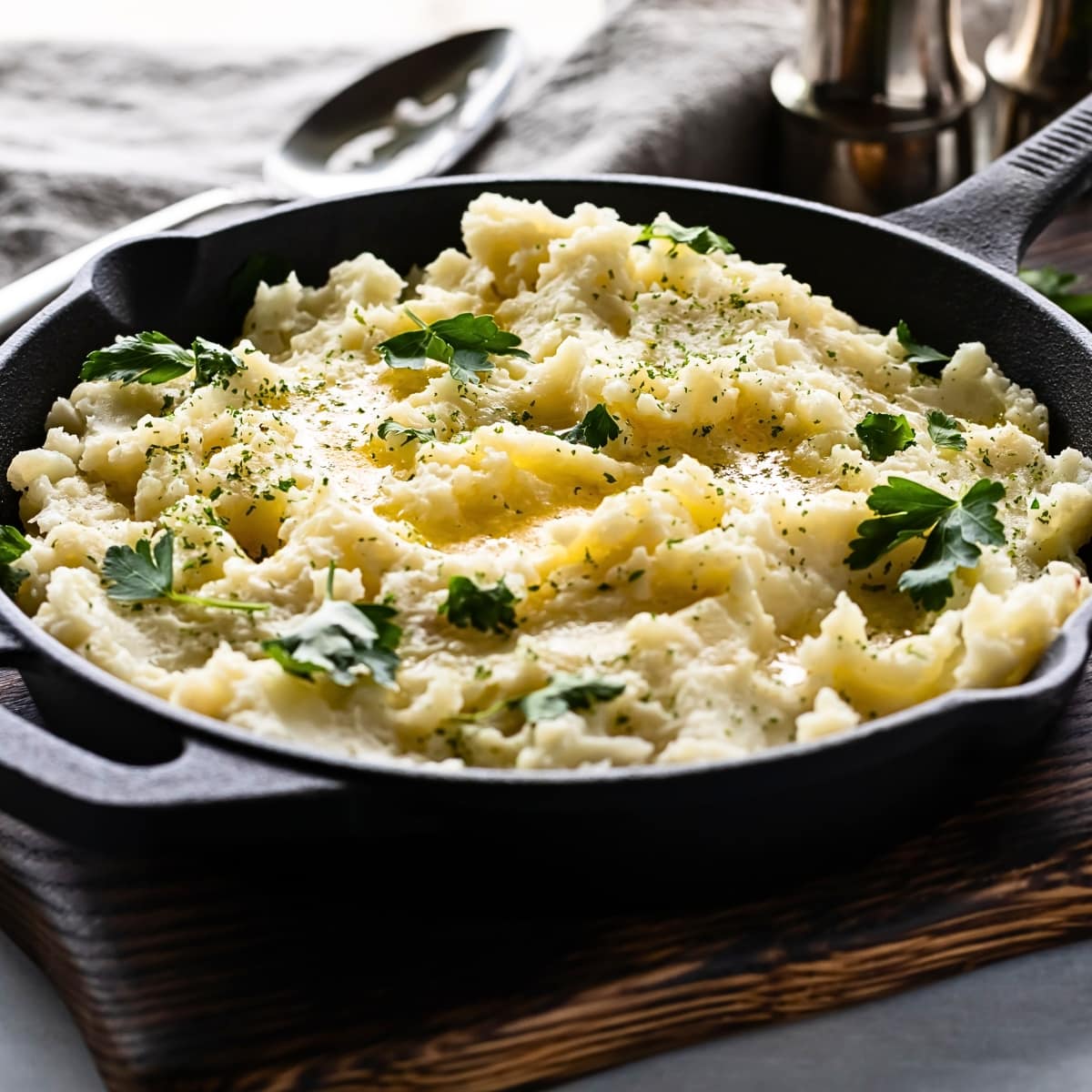
How to Thaw and Reheat Frozen Mashed Potatoes
Stovetop
Thawing
- Remove the frozen mashed potatoes from the freezer and transfer them to a microwave-safe bowl.
- Thaw the potatoes in the microwave using the defrost setting (or at low power).
- Stir occasionally to promote even thawing.
Reheating
- Once the mashed potatoes thaw, transfer them to a saucepan.
- Heat the mashed potatoes over low to medium-low heat.
- Stir frequently to prevent sticking and ensure even heating.
Oven
Thawing
- Transfer the frozen mashed potatoes to the refrigerator and let them thaw overnight.
- Alternatively, you can use the defrost setting on your microwave to defrost the potatoes.
Reheating
- Preheat your oven to around 350°Fahrenheit (175°Celsius).
- Place the thawed mashed potatoes in an oven-safe dish and cover it with aluminum foil.
- Heat the mashed potatoes in the oven for 15-25 minutes.
- They are ready when they are warm.
- You can add butter or cream to keep them moist while reheating.
Microwave
Thawing
- Place the frozen mashed potatoes in a microwave-safe container.
- Use the defrost setting or low power level to defrost them.
- Be sure to stir the potatoes every few minutes to ensure even thawing.
Reheating
- After the mashed potatoes thaw, cover the container with a microwave-safe lid.
- Leave a small vent for steam to escape.
- Heat the mashed potatoes in 30-second or 1-minute intervals.
- Stir in between to ensure even reheating.
Slow-Cooker
Thawing
- Thaw the frozen mashed potatoes in the refrigerator overnight.
- Or thaw them using the microwave’s defrost setting.
Reheating
- Transfer the thawed mashed potatoes to a slow cooker.
- Set the slow cooker to the low heat setting.
- Let the potatoes warm up for about 2-4 hours, stirring occasionally to promote even heating.
- You may need to add milk, cream, or butter for moisture.
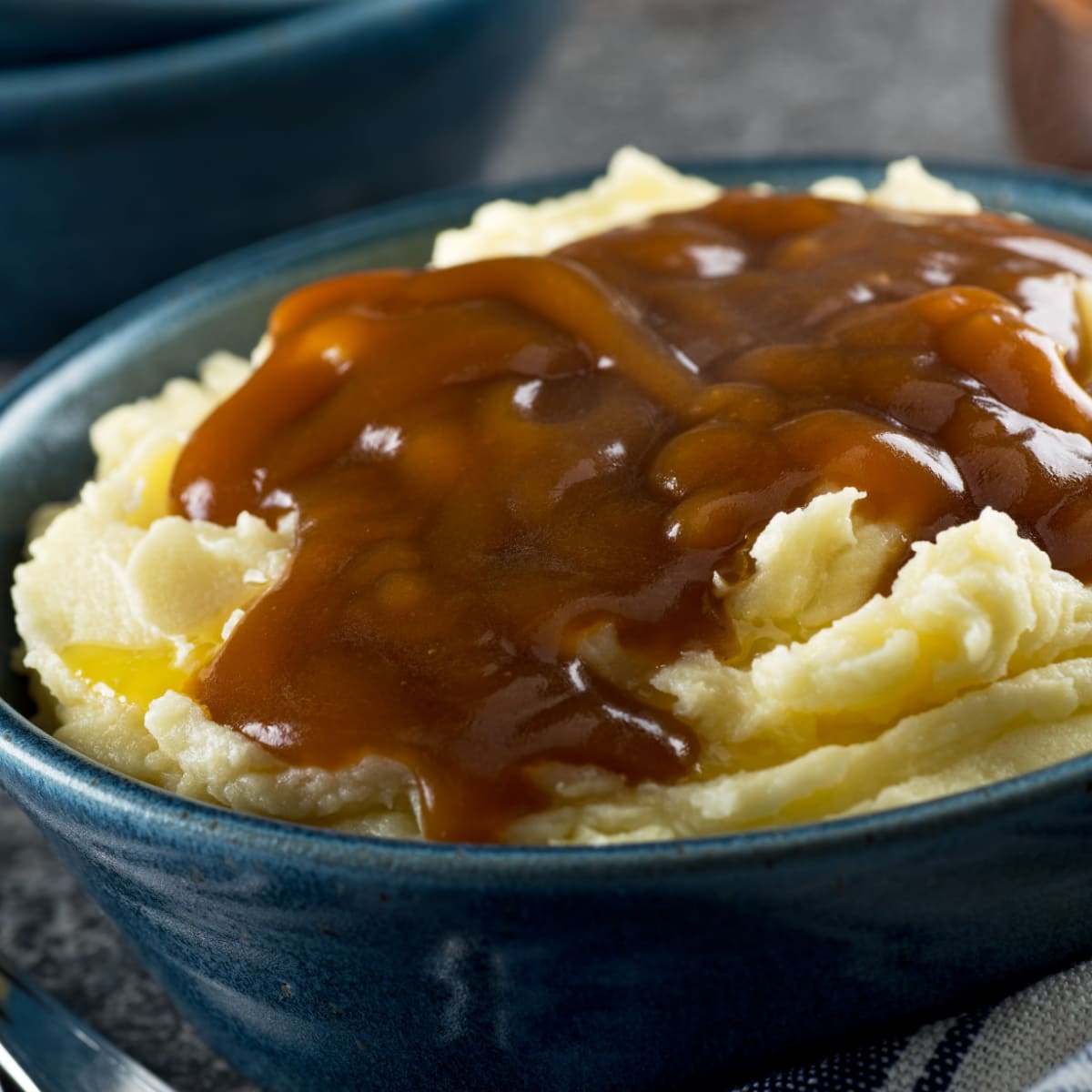
How to Fix Watery Mashed Potatoes
- Reheat and Evaporate: Heat the potatoes on low heat and stir continuously to help evaporate the excess moisture.
- Add Dry Ingredients: Gradually incorporate dry ingredients like instant mashed potato flakes, bread crumbs, or powdered potato starch.
- These ingredients can help absorb excess moisture and thicken the mixture.
- Add Butter and Cream: The fats will help emulsify the mixture and give it a creamier consistency.
- Add Cheese or Egg Yolks: Add grated cheese or egg yolks to help bind the potatoes and improve their consistency.
How to Choose the Right Potatoes for Freezing
Choose High-Starch Varieties
Producers categorize potatoes into three types based on their starch content:
- High-starch (russet)
- Medium-starch (Yukon Gold)
- Low-starch (red potatoes).
High-starch potatoes, like russets, freeze better because they have a fluffier texture when cooked.
Avoid Waxy Varieties
Waxy potatoes have a lower starch content and a waxy texture. Good examples are red potatoes or fingerlings.
These can become grainy or watery when frozen and thawed.
Waxy types of potatoes are better suited for immediate consumption rather than freezing.
